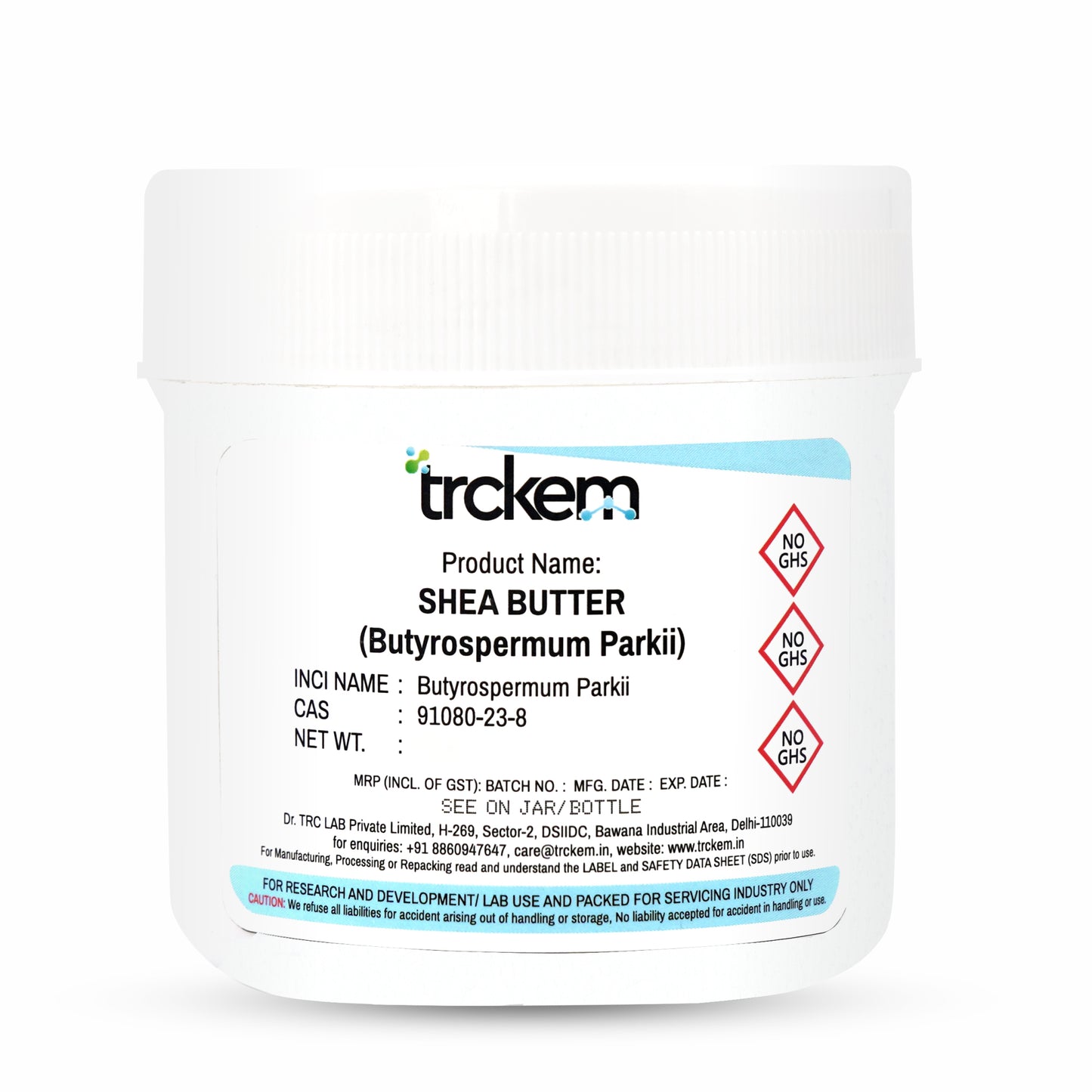
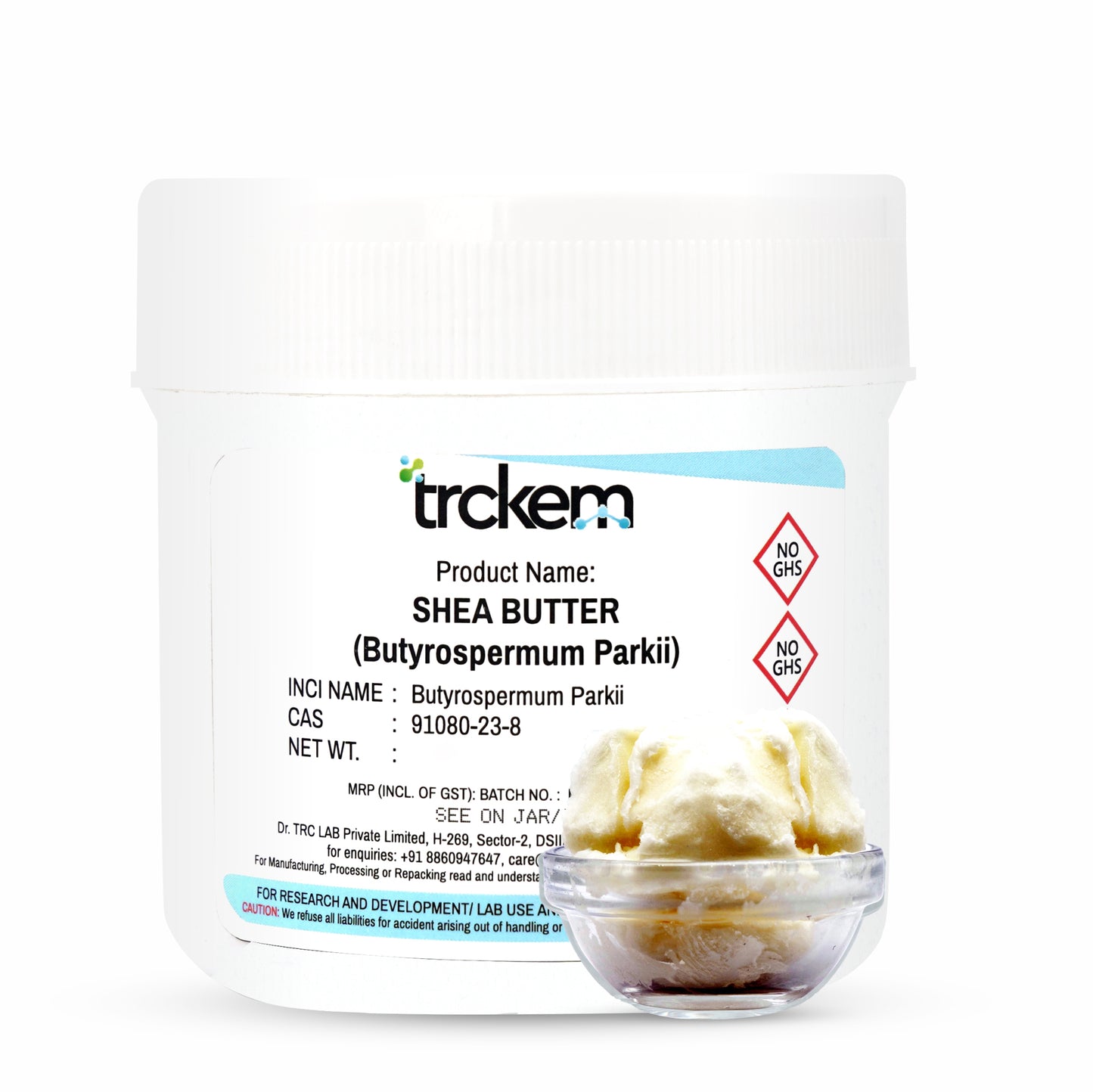
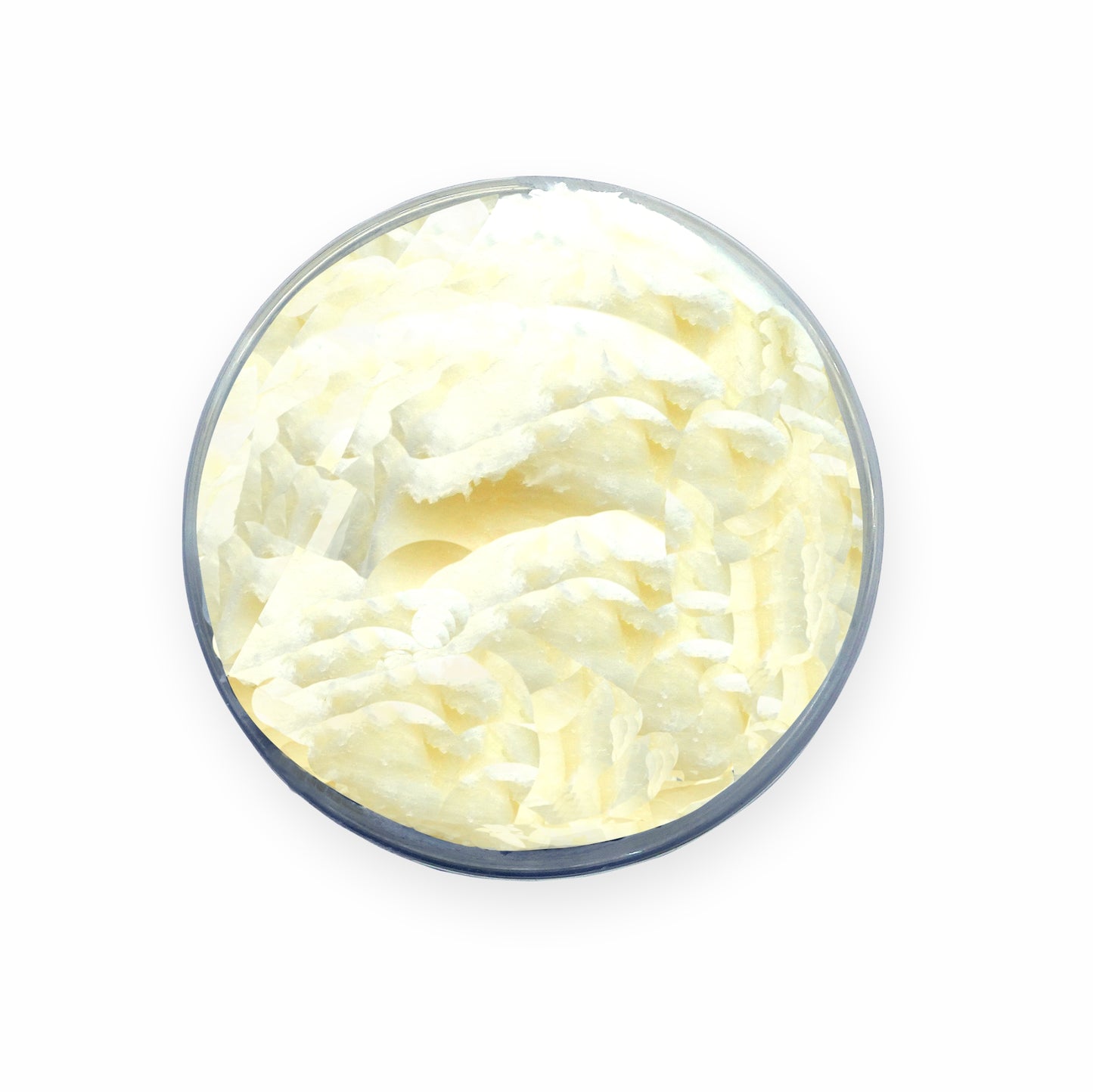
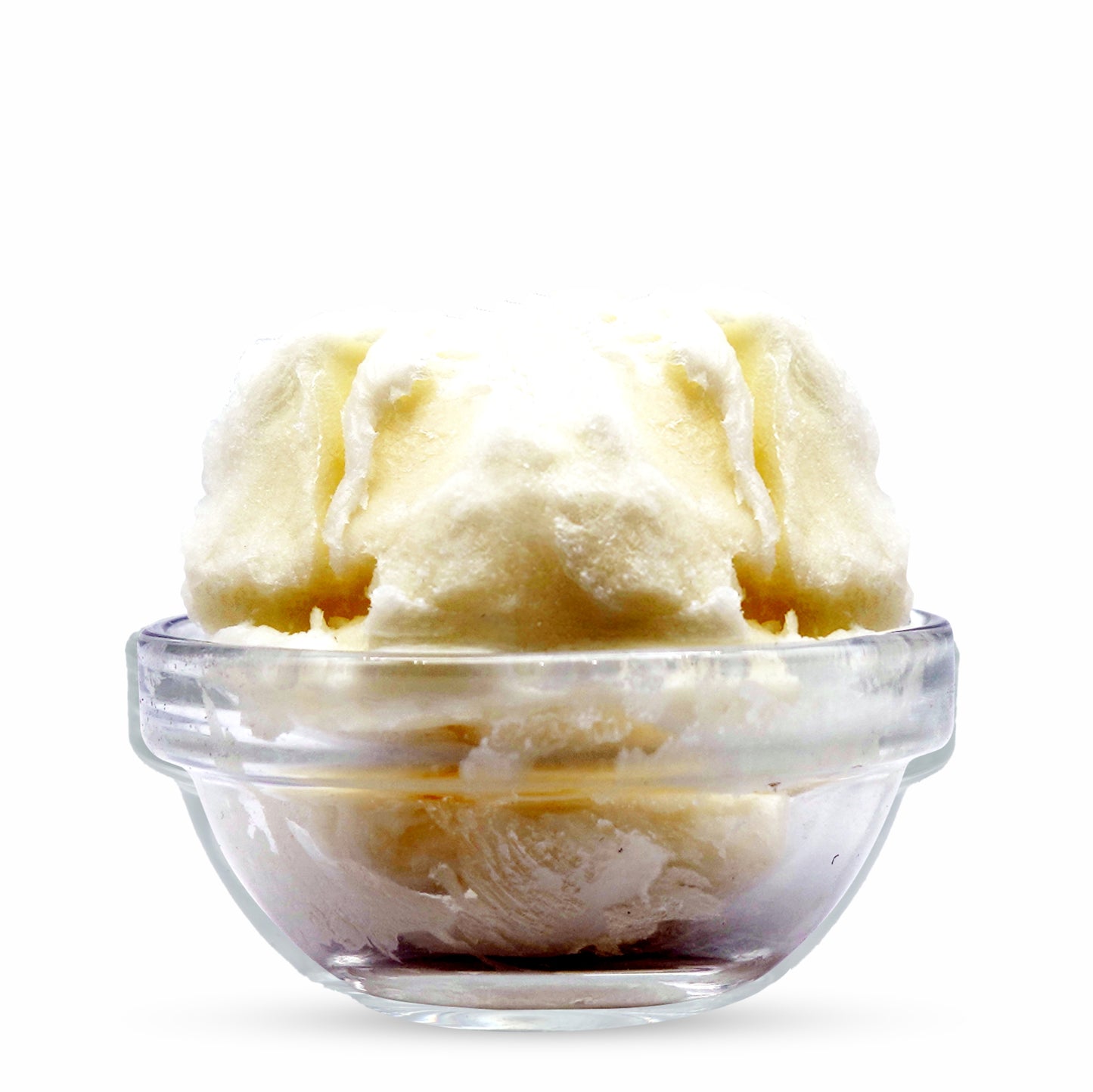
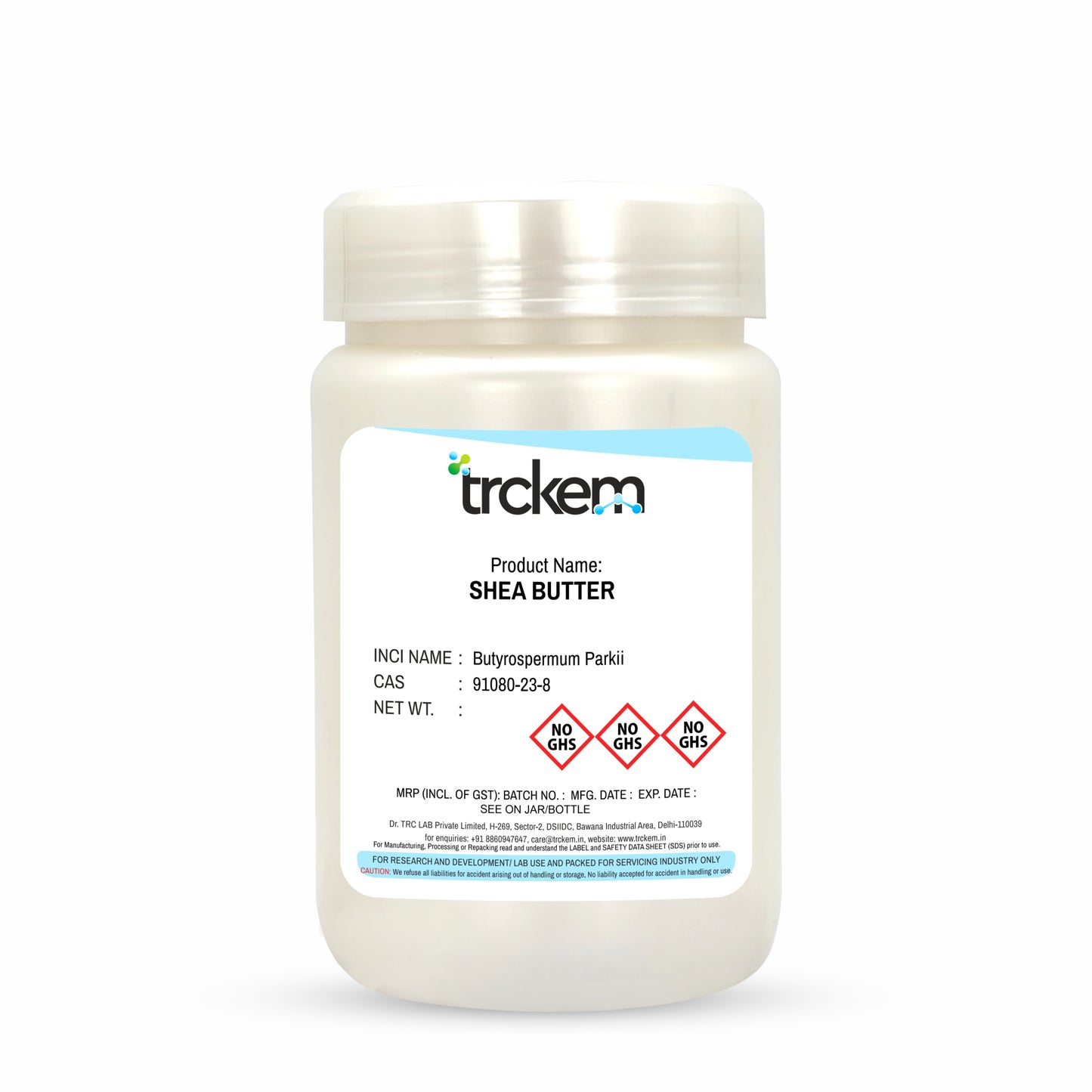
Formulator’s Queries, We Answered
1. What is Shea Butter?
Shea Butter is a natural fat extracted from the nuts of the Shea tree (Vitellaria paradoxa). It is widely used in personal care and cosmetic formulations for its moisturizing, nourishing, and skin-conditioning properties.
2. What is the CAS Number and INCI Name of Shea Butter?
CAS Number: 91080-23-8
INCI Name: Butyrospermum Parkii (Shea) Butter
3. What are the benefits of Shea Butter in personal care products?
Shea Butter offers multiple benefits, including:
- Deep Moisturization: Helps retain skin moisture and prevent dryness.
- Skin Soothing Properties: Reduces redness, irritation, and inflammation.
- Anti-Aging Effects: Rich in vitamins A and E, promoting skin elasticity.
- Natural Healing: Helps with minor wounds, burns, and stretch marks.
- Hair Nourishment: Softens and conditions hair, preventing breakage.
4. In which personal care products is Shea Butter commonly used?
Shea Butter is a key ingredient in:
- Skincare products (lotions, creams, balms, body butters)
- Haircare products (shampoos, conditioners, hair masks)
- Lip care (lip balms, lipsticks)
- Baby care products (diaper creams, gentle moisturizers)
- Sunscreens and after-sun lotions
5. Is Shea Butter safe for all skin types?
Yes, Shea Butter is generally well-tolerated by all skin types, including sensitive and acne-prone skin. However, individuals with nut allergies should perform a patch test before use.
6. Can Shea Butter be used in organic and natural formulations?
Yes, Shea Butter is widely used in natural and organic cosmetic formulations, especially when it is raw, unrefined, and certified organic.
7. What is the recommended concentration of Shea Butter in cosmetic formulations?
The recommended concentration varies by product type but typically ranges from 2% to 20% in personal care formulations.
8. Does Shea Butter clog pores?
No, Shea Butter is non-comedogenic, meaning it does not clog pores. It is often used in formulations for acne-prone and sensitive skin.
9. What is the shelf life of Shea Butter?
Shea Butter typically has a shelf life of 2 to 3 years when stored properly in a cool, dry place away from direct sunlight.
10. How should Shea Butter be stored?
Store Shea Butter in an airtight container in a cool, dry environment to prevent oxidation and maintain its texture and efficacy.







